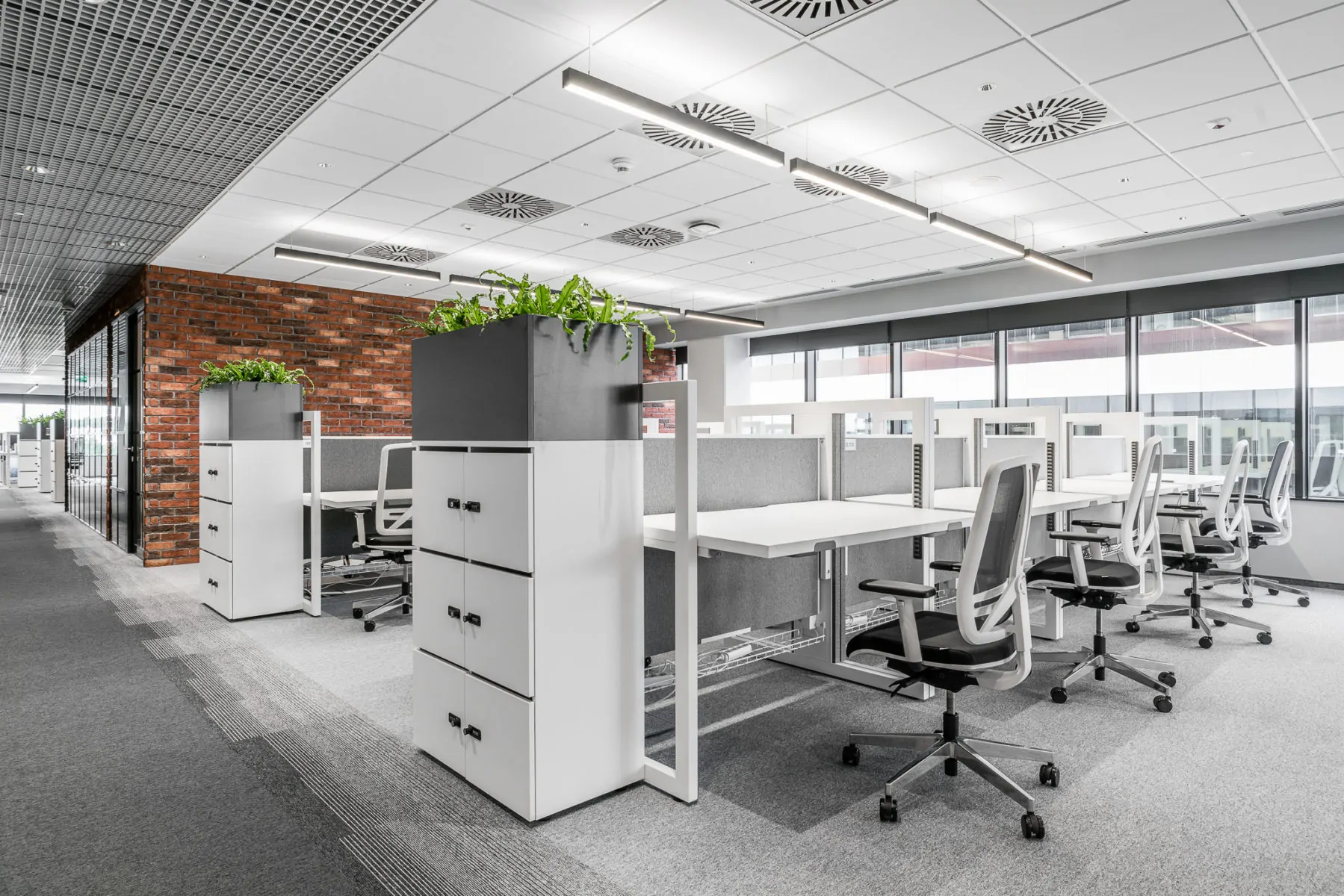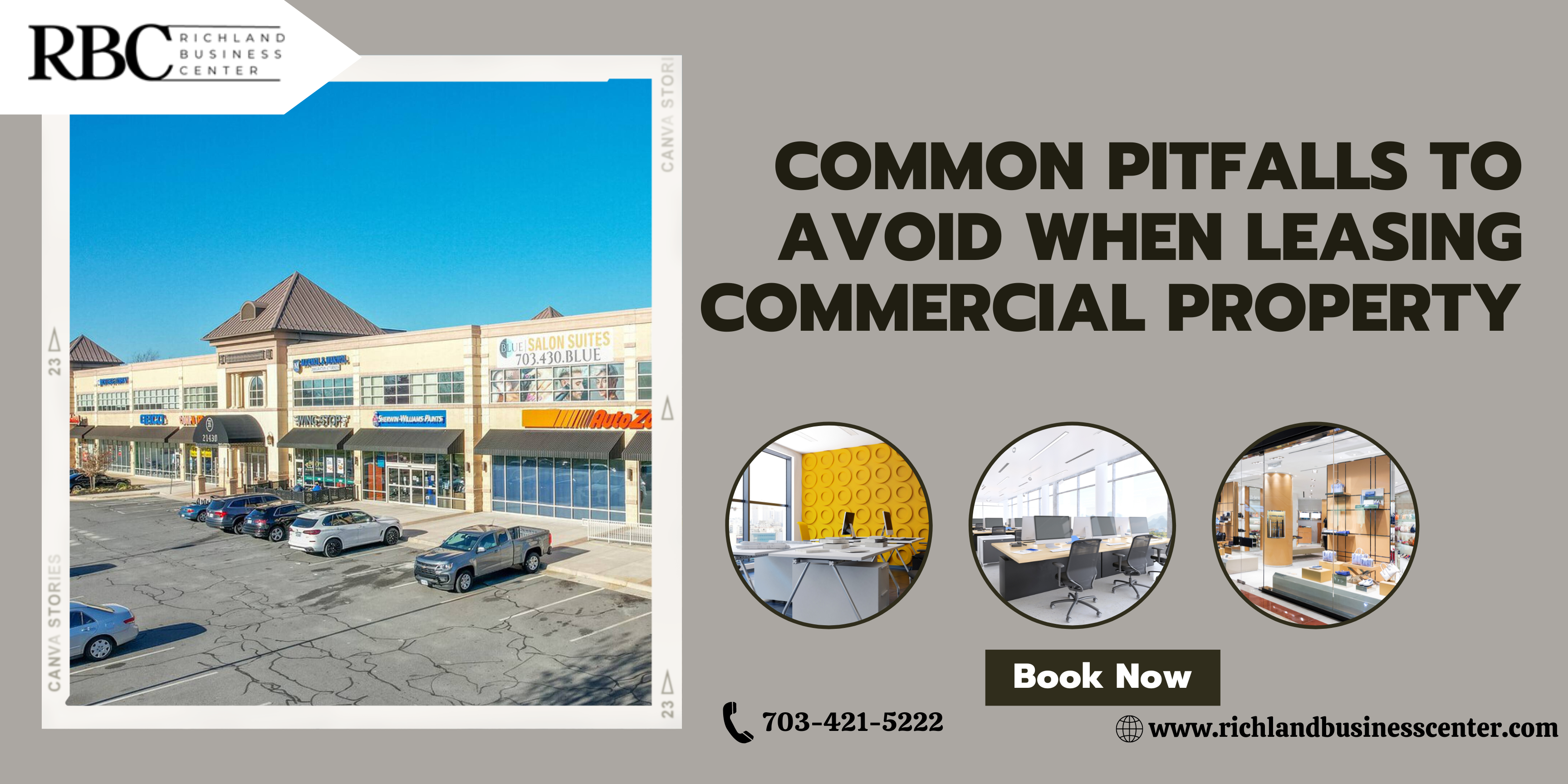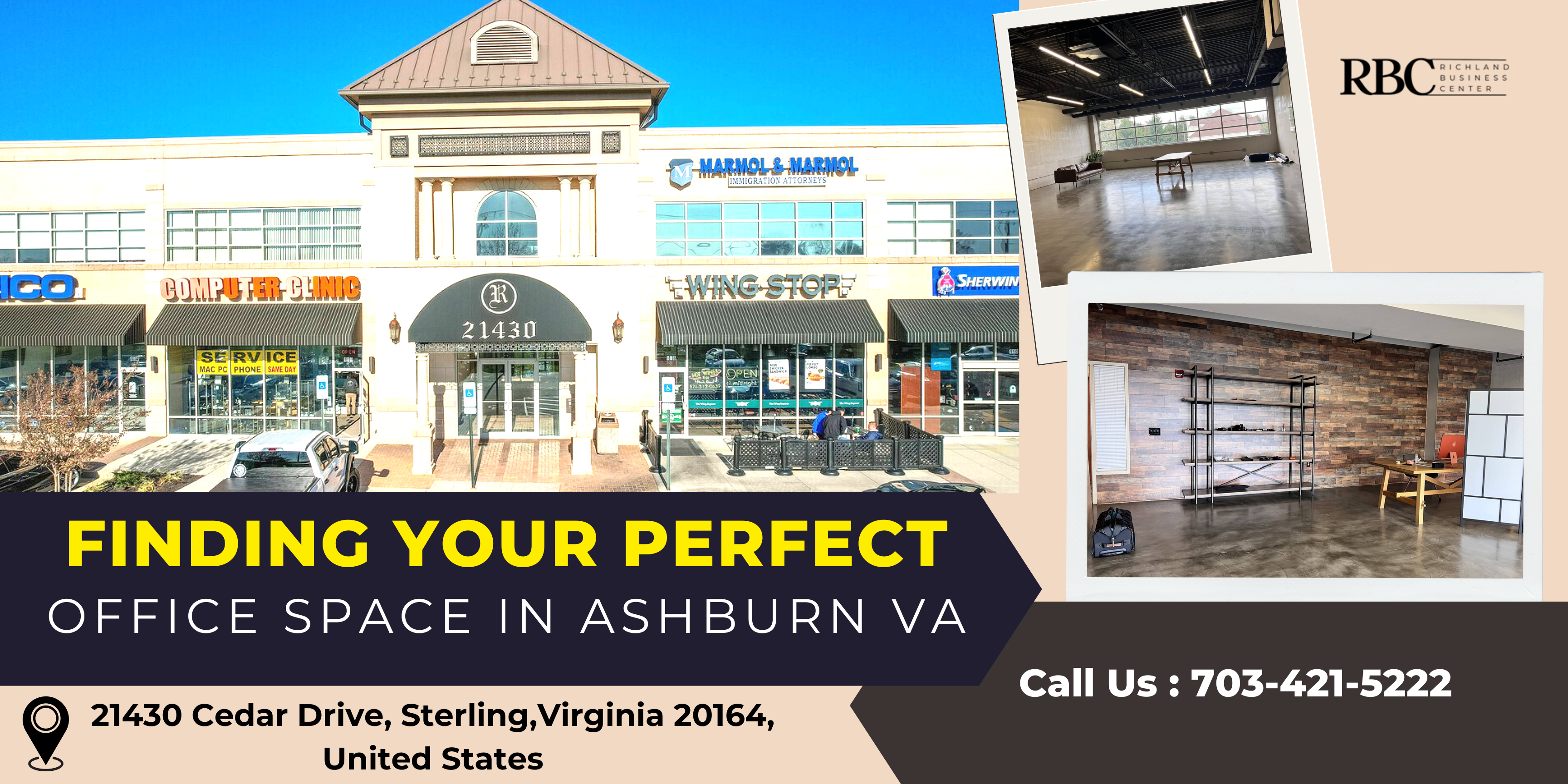Advantages of Having an Office Space for your business

Introduction
In the bustling business landscape, the search for a suitable workspace takes on added significance, particularly for entrepreneurs seeking office space for rent in Sterling, VA. The choice of an office space is not merely about securing a physical location; it is a strategic decision that sets the tone for productivity, professionalism, and overall business success. A dedicated workspace, such as those available for rent in Sterling, VA, provides a central hub where ideas flourish, collaboration thrives, and businesses establish their unique identity. This article explores the manifold advantages that come with having a designated office space, shedding light on how such spaces, especially in Sterling, VA, contribute to fostering a conducive environment for innovation, growth, and a flourishing business journey.
Boosting Productivity
A. Minimizing Distractions
In the modern era of constant connectivity, minimizing distractions is crucial for maintaining high levels of productivity. A dedicated office space provides an environment where individuals can focus on their tasks without the interruptions that often come with working from home or in shared spaces. By having a designated area free from household disturbances or the noise of public spaces, employees can concentrate on their work, resulting in improved efficiency.
B. Fostering a Professional Atmosphere
The ambiance of a professional workspace plays a significant role in fostering a mindset geared towards work. An office environment is intentionally designed to exude professionalism, with structured layouts and designated workstations contributing to a serious and purposeful atmosphere. This intentional setting encourages individuals to approach their work with a heightened sense of dedication and commitment, ultimately leading to increased productivity.
C. Collaboration Opportunities
While individual focus is vital, so is collaboration. An office space facilitates impromptu discussions, brainstorming sessions, and collaborative efforts that are often challenging in virtual or remote work settings. The ease of turning to a colleague for quick input or engaging in face-to-face discussions fosters a collaborative spirit, enhancing the overall productivity of the team. The dynamic exchange of ideas in a physical space can lead to innovative solutions and efficient problem-solving, contributing positively to the collective productivity of the workforce.
Secure Your Success: Explore Prime Opportunities with Our Exclusive Office Spaces for Rent!
Employee Well-being
Employee well-being is a crucial aspect of a thriving and sustainable business, and having a dedicated office space plays a pivotal role in fostering a positive work environment that contributes to the overall well-being of employees. Here’s a deeper exploration of the elements that make up employee well-being in the context of an office setting:
A. Ergonomic Workspaces
Creating ergonomic workspaces is an essential component of prioritizing employee well-being. Ergonomics involves designing the workspace to fit the needs of employees, considering factors such as desk height, chair comfort, and computer placement. A well-designed office space minimizes physical strain, reduces the risk of musculoskeletal issues, and contributes to the overall health and comfort of employees during their working hours.
B. Mental Health Benefits
Beyond the physical aspects, employee well-being encompasses mental health considerations. A dedicated office space provides a structured environment that helps in managing stress and promoting mental well-being. The separation of professional and personal spaces reduces the potential for burnout, as employees can mentally “leave work” when they exit the office. Moreover, the social aspect of working in proximity to colleagues fosters a sense of belonging and support, positively impacting mental health.
C. Work-Life Balance
Maintaining a healthy work-life balance is a critical factor in employee well-being. Having a physical office allows for clear delineation between work and personal life. Employees can leave work behind when they step out of the office, contributing to a more balanced lifestyle. This separation is especially vital in preventing the blurring of boundaries that can occur in remote work situations, helping employees recharge and return to work with renewed energy.
Enhanced Communication
A. Face-to-Face Interaction
One of the primary advantages of having an office space is the facilitation of face-to-face interaction among team members. In a physical workspace, colleagues can engage in real-time discussions, brainstorming sessions, and impromptu meetings. This direct form of communication fosters a deeper understanding of ideas, promotes quick decision-making, and builds stronger interpersonal relationships. The nuances of non-verbal communication, such as body language and facial expressions, contribute to a more comprehensive exchange of information, reducing the likelihood of misunderstandings that can occur in virtual communication channels.
B. Team Building
An office environment provides a conducive setting for team-building activities and initiatives. These activities go beyond the formalities of work and create opportunities for team members to connect on a personal level. Whether it’s a team lunch, after-work social events, or collaborative projects, the shared physical space enhances the sense of camaraderie. This, in turn, translates into improved communication within the team. When colleagues know each other on a more personal level, they are more likely to communicate openly, share ideas, and collaborate effectively, ultimately contributing to a more cohesive and productive work environment.
Better Resource Management
In the realm of business, efficient resource management is a crucial element for sustained growth and profitability. The concept of “Better Resource Management” in the context of having an office space for your business encompasses various aspects that contribute to streamlined operations and cost-effectiveness.
A. Centralized Equipment:
1. Optimized Equipment Usage: Having a dedicated office space allows businesses to centralize their equipment, ranging from computers and printers to specialized tools. This centralization leads to optimal usage of resources as equipment can be shared among team members, reducing the need for redundant or underutilized assets.
2. Maintenance and Upkeep: Centralized equipment management simplifies maintenance processes. With all equipment located in one place, regular inspections, updates, and repairs can be efficiently conducted, ensuring that all tools are in top working condition.
3. Cost Savings: Shared use of equipment results in significant cost savings. Instead of each department or team investing in its own set of tools, the collective use minimizes overall expenditures, making it a financially prudent approach for businesses.
B. Shared Facilities
1. Streamlined Office Space Utilization: Beyond equipment, shared facilities extend to common spaces like meeting rooms, break areas, and collaborative zones. This approach optimizes the utilization of office space, ensuring that every square foot serves a purpose and contributes to the overall functionality of the workspace.
2. Flexible Workspace Allocation: In an office environment, shared facilities offer flexibility in workspace allocation. Teams can utilize shared meeting rooms based on their needs, and this adaptability enhances the overall efficiency of the office layout.
3. Enhanced Collaboration: Shared facilities promote spontaneous interactions and collaboration. When different teams share common spaces, it fosters a sense of unity and encourages cross-functional communication, leading to increased innovation and problem-solving.
In essence, the better resource management aspect of having an office space revolves around centralizing equipment, optimizing its use, and creating shared facilities that contribute to a more efficient, cost-effective, and collaborative work environment.
Improved Work Culture
A. Company Identity
A dedicated office space plays a pivotal role in shaping and reinforcing a company’s identity. The physical environment, adorned with the company’s branding, colors, and ethos, becomes a tangible representation of its values and mission. This visual consistency creates a sense of unity among employees, fostering a shared identity and commitment to common goals. Company-branded spaces, from meeting rooms to break areas, serve as constant reminders of the organization’s purpose, helping employees align with and embody the company’s culture.
B. Celebrating Milestones
Physical office spaces provide a stage for celebrating achievements and milestones, contributing significantly to the development of a positive work culture. Whether it’s a product launch, a successful project completion, or an employee’s work anniversary, having a dedicated space allows for communal gatherings and celebrations. This fosters a sense of shared accomplishment and camaraderie among team members, creating lasting memories and a positive work atmosphere.
Importance of Celebrations:
1. Boosts Morale: Recognizing and celebrating achievements boosts employee morale, reinforcing a sense of pride in their work.
2. Fosters Team Bonding: Collective celebrations create opportunities for team members to bond outside the confines of daily work, strengthening interpersonal relationships.
3. Cultivates a Positive Atmosphere: Regular celebrations contribute to a positive and enjoyable work atmosphere, enhancing job satisfaction.
Real-world Example:
Consider a company-wide celebration in the office for reaching a significant sales milestone. The physical gathering allows employees to share in the success, enjoy each other’s company, and reinforces a positive work culture centered around shared accomplishments.
Cost-Efficiency
A. Shared Utilities
Having an office space fosters cost-efficiency through shared utilities. In a shared workspace, businesses can split the costs of essential utilities such as electricity, water, and internet services. This shared cost model ensures that individual businesses do not have to bear the full burden of these overhead expenses, making it a financially prudent choice, especially for startups or small businesses with budget constraints. By pooling resources, businesses can access high-quality utilities at a fraction of the cost they would incur independently.
B. Economies of Scale
One of the key drivers of cost-efficiency in office spaces is the concept of economies of scale. Larger office spaces can accommodate more employees and resources, spreading fixed costs across a greater output. This results in lower average costs per unit of production or operation. For example, the cost per square foot for a larger office is generally lower than that of a smaller space. Moreover, shared facilities, such as meeting rooms or common areas, contribute to economies of scale by maximizing the utilization of space and resources, further reducing per-unit costs for each business.
Better Work-Life Boundaries
In the modern professional landscape, achieving a delicate equilibrium between work and personal life has become increasingly challenging. The segment on “Better Work-Life Boundaries” in the context of having an office space for your business sheds light on how a physical workspace contributes to fostering a healthier balance between professional commitments and personal well-being.
A. Defined Work Hours
In the realm of remote work and flexible schedules, it’s easy for lines to blur between the official workday and personal time. Having a dedicated office space allows businesses to set and enforce defined work hours. This not only brings structure to employees’ daily routines but also helps them mentally transition between work and personal life.
1. Structuring the Day: Employees working from an office space tend to adhere to a more structured workday. This structure aids in task management and ensures that work responsibilities are completed within the designated time frame.
2. Avoiding Overworking: With a clear start and end to the workday, employees are less prone to overworking. This preventive measure is crucial in preventing burnout and maintaining overall well-being.
B. Avoiding Burnout
Workplace burnout has become a prevalent concern in today’s fast-paced professional world. The advantages of having an office space play a pivotal role in mitigating the risk of burnout by promoting a healthier work-life balance.
1. Physical Separation: An office space provides a physical separation between the professional and personal realms. This spatial distinction helps employees mentally detach from work once they leave the office, reducing the likelihood of constant work-related stress.
2. Encouraging Downtime: The physical commute from home to the office and vice versa creates a natural buffer zone. This transition time allows employees to decompress, unwind, and mentally switch gears before entering their personal space.
3. Enhancing Leisure Time: A defined workspace facilitates the creation of dedicated leisure spaces at home. When work is confined to the office, other areas of the home can be preserved for relaxation and personal activities, further contributing to a better work-life balance.
Secure Your Success: Explore Prime Opportunities with Our Exclusive Office Spaces for Rent!
Flexibility and Adaptability
A. Adapting to Changing Needs
In the dynamic landscape of business, the ability to adapt to changing needs is crucial for sustained success. Having a dedicated office space facilitates this adaptability in several ways:
1. Scalability: An office space provides room for growth, allowing businesses to scale their operations seamlessly. As the workforce expands, the physical infrastructure can be adjusted to accommodate new team members, technologies, and equipment.
2. Infrastructure Upgrades: In response to evolving technological requirements, having a designated office allows for easy integration of updated infrastructure. This includes incorporating advanced communication systems, IT upgrades, and other technological advancements that are integral to modern business operations.
3. Customization: Businesses can customize their office spaces to align with specific industry demands. Whether it’s creating collaborative zones for creative industries or setting up private spaces for focused work, the flexibility to tailor the environment contributes to enhanced productivity and innovation.
B. Flexible Working Arrangements
1. Hybrid Work Models: The modern workforce often values flexibility in work arrangements. A dedicated office space provides the foundation for implementing hybrid work models, allowing employees to balance remote work and in-office collaboration. This flexibility caters to diverse work preferences, contributing to increased job satisfaction and retention.
2. Remote-Friendly Infrastructure: Even when employees have the option to work remotely, a physical office offers a reliable infrastructure for those who choose to work on-site. This includes access to secure networks, specialized equipment, and collaborative spaces, fostering a seamless blend of remote and in-person work.
3. Meeting Diverse Employee Needs: Different employees have different work preferences. Some thrive in a traditional office setting, while others prefer the flexibility of remote work. Having a dedicated office space enables businesses to accommodate diverse needs, promoting inclusivity and supporting a varied workforce.
In essence, the flexibility and adaptability offered by a dedicated office space empower businesses to navigate the ever-changing business landscape. It serves as a strategic asset, positioning the organization to embrace opportunities, overcome challenges, and thrive in an environment of constant evolution.
Long-Term Cost Savings
A. Asset Appreciation
Investing in a dedicated office space can yield long-term benefits through asset appreciation. Real estate, particularly in prime locations, tends to appreciate over time. As the value of the property increases, so does the overall worth of your business assets. This can be advantageous in the long run, especially if you own the office space, as it becomes a valuable asset on your balance sheet.
Benefits:
1. Equity Growth: Owning a property allows your business to build equity over time, providing financial leverage and stability.
2. Increased Borrowing Power: A property with appreciating value enhances your business’s borrowing capacity, enabling strategic financial decisions.
B. Reduced Turnover Costs
Employee turnover can be a significant expense for businesses. Creating a conducive office environment positively influences employee satisfaction and, consequently, retention. The long-term cost savings in this context are realized by minimizing turnover-related expenses.
Benefits:
1. Recruitment Costs: Recruiting and onboarding new employees involve substantial expenses. A stable workforce reduces the frequency of these costs.
2. Training Investments: Training programs to onboard new hires require time and resources. Reducing turnover preserves these investments.
3. Maintaining Institutional Knowledge: Long-term employees contribute to the retention of institutional knowledge, enhancing overall organizational efficiency.
Conclusion
In conclusion, the myriad advantages discussed underscore the pivotal role of having an office space for your business. Whether it’s boosting productivity, establishing a professional image, or fostering a culture of innovation, the benefits are far-reaching. For those seeking a practical solution, considering office space for rent in Sterling, VA is a strategic move. Sterling, VA, with its central location and accessible facilities, provides an ideal backdrop for businesses aiming to thrive. By exploring the offerings of available office spaces for rent, entrepreneurs can unlock a host of advantages, from cost-efficiency and networking opportunities to enhanced security and employee well-being. Choosing a dedicated workspace in Sterling, VA, not only aligns with business goals but also positions enterprises for long-term success in a dynamic and competitive market.
Frequently Asked Questions
Q1. What are the key benefits of having a dedicated office space?
Answer: A dedicated office space offers numerous benefits, including enhanced productivity, improved professionalism, increased collaboration, and the establishment of a positive business image. It contributes to a conducive work environment that fosters growth and success.
Q2. Are there cost-effective solutions for small businesses to have office spaces?
Answer: Yes, several cost-effective solutions exist for small businesses to have office spaces. Co-working spaces, shared offices, and flexible leasing options provide affordable alternatives to traditional office setups. These options allow businesses to benefit from a professional environment without the high costs associated with long-term leases and maintenance.
Q3. How can I find available office spaces for rent in Sterling, VA?
Answer: Finding office space for rent in Sterling, VA is easy. You can explore online real estate platforms, contact local real estate agents, or visit business centers and co-working spaces in the area. You can also visit our website for explore more Richlandbusinesscenter.com




